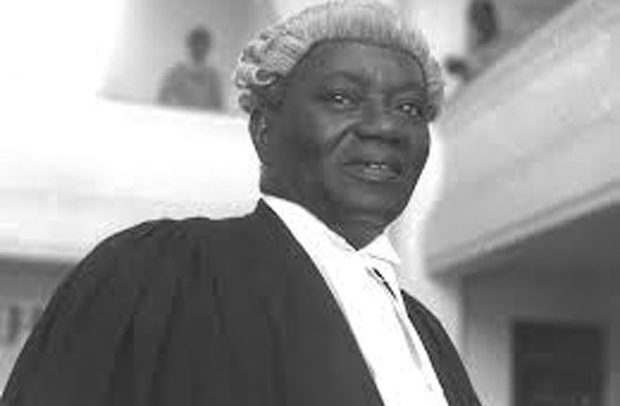Although the 53rd anniversary of the death of Dr. J. B. Danquah, the ‘Doyen of Gold Coast Politicians’, a foremost statesman, philosopher and indomitable fighter in the cause of human freedom, which fell on 5th February was not celebrated with the usual pomp and pageantry, it brought into memory the relevance of his life and thoughts to our efforts at nation-building today, in particular, his sustained warning against the danger posed by the incipient culture of corruption, fraud and stealing. I attempt in this comparatively brief feature article to draw attention to J. B.’s warning against the corruption canker, which is holding sway today in our Ghanaian society.
- B. Danquah, a patriot whose burning desire throughout his life was to secure independence for the Gold Coast, for which he suggested the name Ghana, was a man of great vision. He forewarned his countrymen about the danger posed by the incipient culture of corruption, fraud and stealing. Incidence of corruption among politicians and public officers was J.B’s major concern. Sixty six years ago on 8 December 1952, that is, before Ghana’s independence in March 1957, J. B. Danquah wrote to His Excellency Sir Charles Noble Clarke, praying to Sir Charles ‘ in the name of God to delay no longer but appoint a Commission of Enquiry into corruption and bribery as well as misuse of public funds that is going on in the country’.
Danquah added that he had already brought to the notice of the Finance Committee information that had reached him regarding the Assembly Press, which, scheduled to cost some 20,000 pounds ‘has cost the country about 84,000 pounds’. Danquah concluded that it was distressing that such things should ‘happen under Your Excellency’s governorship’, stressing that ‘Your Excellency may make use of your powers’ to save this country from being ruined by failure to tighten screw against ‘wholesale demoralization of administration in the highest quarters’.
Not satisfied with Sir Charles’ delay in tackling the corruption canker, J.B. drew the attention of Prime Minister Kwame Nkrumah to the incidence of corruption among his ministers, commissioners and other agents of his government. With uncanny accuracy, Danquah predicted, in a personal letter to the Prime Minister dated 4 November 1959, that this nation would be overwhelmed by the rising tide of corruption and moral degeneration if members of government did not set the right example. The letter stated in part:
It ought to be quite clear by now that the practice of ministers,
Commissioners (High, Regional or District) and other political
agents of government taking presents of money, or gold, or Kente,
or in kind, from members of the public, including chiefs, is not
healthy and does not inspire a decent public life …………………
Danquah continued that he would be happy if the cabinet of the Prime Minister would issue orders to stop it; otherwise ‘corruption and fraud will never abate in this land and its increasing pace will eat into all aspects of our public life, even the civil service…’ J.B. concluded that:
Fraud and stealing are becoming rampant, even at the Post Office
and in the Police Force because people see other people make cheap
gains elsewhere. This country can prove itself fit to govern itself if
those primarily charged with governance first set the supreme
example of incorruptibility.
Prophetic words indeed that deserve to be embossed in letters of gold. J. B.’s worst fears have since been confirmed. Bribery, fraud and stealing from public funds have become second nature to many Ghanaians as a way of life. Corruption is today posing a danger to Ghana’s infant democracy and peace. It appears to pervade every corridor of our national lives and gradually threatening the very fabric of our society. If J. B. were alive today he would surely be saying to Ghanaians ‘I told you so’.
Prof. S.K.B. Asante

